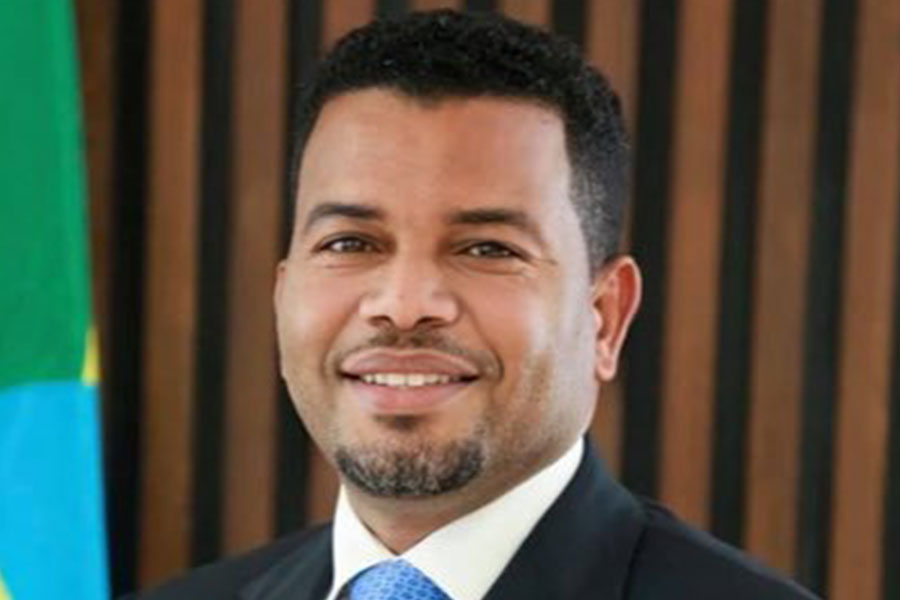
Fortune News | Sep 16,2023
Despite its higher offer, Deloitte Consulting was selected to advise on the partial privatisation process of Ethio telecom, the nation's over-a-century-old telecom monopoly, scoring the highest aggregate points on the government's evaluation.
Deloitte and Ernst & Young (EY), the two global advisory, tax and transaction services providers, have been in a nip and tuck race for the contract. Deloitte was selected after grabbing the highest point value, which amounted to just 0.011 points higher than EY.
EY offered the lowest price of 3.72 million dollars for the project, and Deloitte, the second-lowest bidder, placed a bid for 3.78 million dollars for the service. Technically, Deloitte sat in the leading position with a score of 77.31, followed by EY, which grabbed 76.91 points. However, the aggregate weighted result placed Deloitte on top, scraping ahead of EY with 81.539 points, while EY got 81.528 points.
Even though Deloitte offered a price that is 58,000 dollars higher than EY, it earned the highest weighted point score since the weight on technical evaluation covered 80pc of the total evaluation.
Deloitte received a notice of intention to award on July 10, 2020, and will receive a formal awarding letter after 10 working days of the standstill period if no grievance is filed on the process, according to a source close to the case.
Ameha Bekele, consulting leader of Deloitte East Africa and Ethiopia Desk Leader, declined to comment on the issue.
If hired, Deloitte will undertake legal due diligence, including taxes, contracts and liabilities; recommend a feasible mode of privatisation of the company; and review the initial asset valuation. It will also work with the Public Enterprises Holding & Administration Agency on the preparation of bid documents for the partial privatisation and identify bidder selection criteria. The consultant will be hired for an estimated 14 months.
Before breaking ties with HST Consulting Plc in 2017, Deloitte Leadership had a presence in Ethiopia under the registered name Deloitte Consulting Plc since 2012. During the period, Deloitte designed a management strategy for the Bank of Abyssinia and Hibret Bank. It also researched the e-government project of what was then called the Ministry of Communications & Information Technology among other projects.
For the consultancy service, a total of four global firms vied, including PricewaterhouseCoopers (PwC) and Ronald Berger. KPMG, which is conducting the asset valuation of the telecom firm, was also part of the process until it was rejected due to a conflict of interest that might arise because of the asset valuation assignment.
During the financial opening that was held in mid-June, PWC, which came in third place on the technical evaluation, offered 11.17 million dollars. Ronald Berger placed a bid of 4.65 million euros. Though it was excluded from the process, KPMG's offer was 11 million dollars.
The Ministry of Finance, which has been handling the pre-privatisation process of the company, floated an expression of interest for the project to international companies at the end of September. The World Bank will cover the expenses to hire the consultant from its 300-million-dollar Ethiopia Digital Foundations Project.
Approved last year, the Digital Foundations Project aims at increasing access to affordable, high-quality internet services, promoting digital entrepreneurship and creating digital jobs by mobilising finance for a development approach. Under the Project, the government has requested a project preparation advance (PPA) that is being used to hire a transaction advisor to assist with the partial privatisation of Ethio telecom.
After the government started the process of partial privatisation of the company, the Ministry of Finance has been working on various activities including determining the modality of the company's privatisation, the number of shares to be availed for sale, and ensuring that the company is prepared for privatisation as part of the pre-privatisation process.
Currently, the government is in the process of divesting 45pc of the company for privatisation, keeping the majority under state ownership. Five percent of the shares will be availed for public subscription. Being one of the highest-earning state-owned enterprises, Ethio telecom generated over 22 billion Br in revenues in the first half of this fiscal year.
Ernst & Young East Africa Office did not respond to the email inquiry from Fortunebefore the paper went to print.
PUBLISHED ON
[ VOL
, NO
]

Fortune News | Sep 16,2023

Fortune News | Jul 23,2022

Radar | Apr 25,2020

Radar | Apr 29,2023

Radar | Mar 19,2022

Fortune News | Jan 07,2023

Radar | Apr 10,2021

Fortune News | May 28,2022

Radar | Jan 16,2024

Radar | Oct 10,2020

Dec 22 , 2024 . By TIZITA SHEWAFERAW
Charged with transforming colossal state-owned enterprises into modern and competitiv...

Aug 18 , 2024 . By AKSAH ITALO
Although predictable Yonas Zerihun's job in the ride-hailing service is not immune to...

Jul 28 , 2024 . By TIZITA SHEWAFERAW
Unhabitual, perhaps too many, Samuel Gebreyohannes, 38, used to occasionally enjoy a couple of beers at breakfast. However, he recently swit...

Jul 13 , 2024 . By AKSAH ITALO
Investors who rely on tractors, trucks, and field vehicles for commuting, transporting commodities, and f...

Oct 25 , 2025
The regulatory machinery is on overdrive. In only two years, no fewer than 35 new pro...

Oct 18 , 2025
The political establishment, notably the ruling party and its top brass, has become p...

Oct 11 , 2025
Ladislas Farago, a roving Associated Press (AP) correspondent, arrived in Ethiopia in...

Oct 4 , 2025
Eyob Tekalegn (PhD) had been in the Governor's chair for only weeks when, on Septembe...